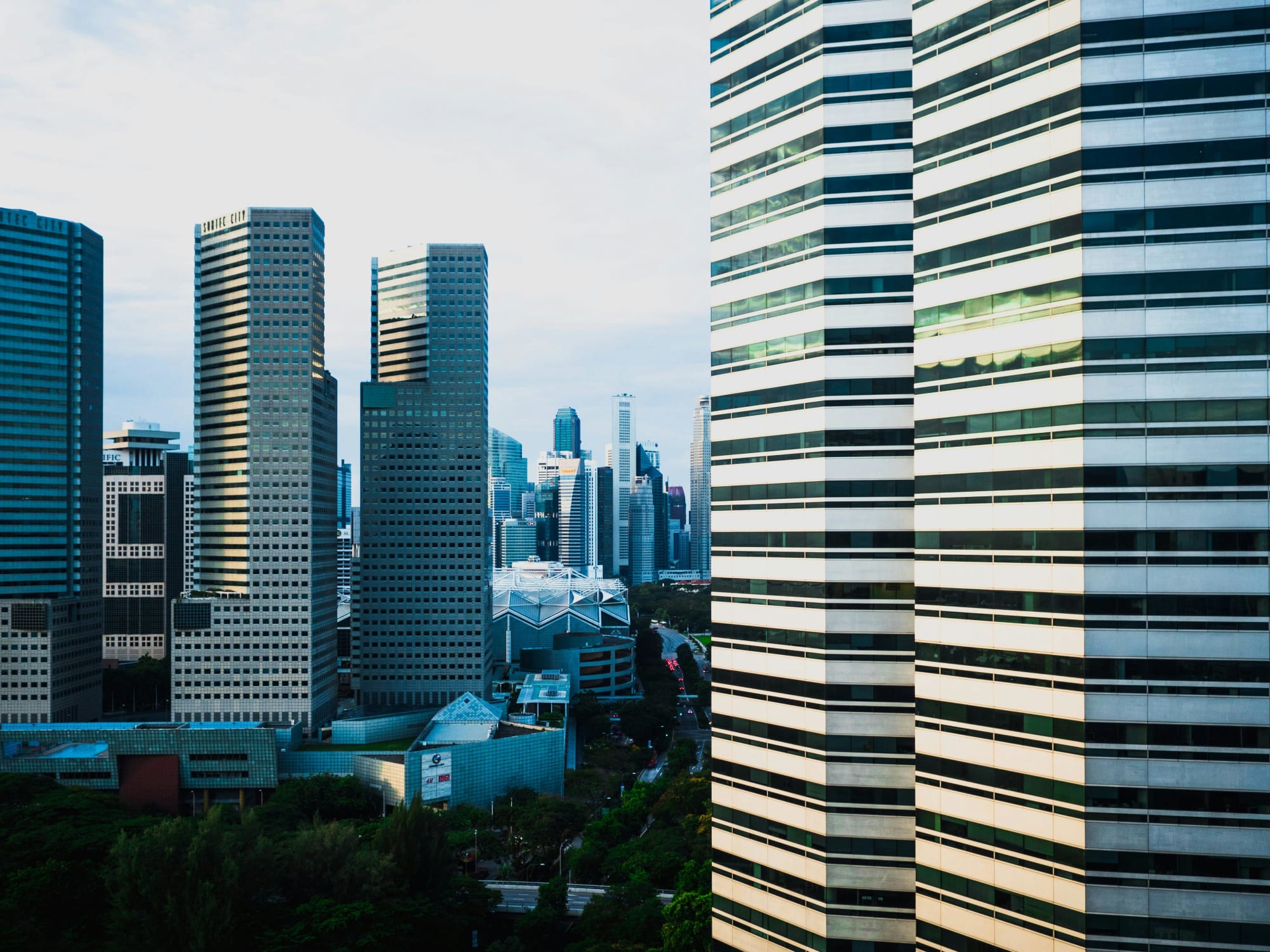ROOT
COVID aftershocks present a risk to investors
Investors need to prepare for the growing risk of “aftershocks” from the COVID-19 pandemic.
COVID aftershocks present a risk to investors
Investors need to prepare for the growing risk of “aftershocks” from the COVID-19 pandemic.

The economic slowdown in China, rising inflation and turbulence in emerging markets have been flagged as three major areas of concern for investors, according to deVere Group CEO Nigel Green.
“COVID was like a monumental earthquake that shook the world economy to its foundations – and like major earthquakes, there are potentially highly damaging aftershocks,” said Mr Green.
“For many, life is almost back to normal, but investors need to be aware of the ongoing multiple investment headwinds that have come about as a direct result of the pandemic.”
China’s economy is now expected to slow faster than previously anticipated, with the potential for “serious and far-reaching effects” globally.

“Growth could slump below 5 per cent as a perfect storm is brewing with Beijing moving to reduce its dependence on real estate, to increase regulation in a range of key sectors from education to technology, plus they’re dealing with a serious energy crisis and the lingering impact of the pandemic,” Mr Green said.
Inflation moving from transitory to permanent is also a key risk for investors, potentially triggered by higher commodity prices and continuing supply chain disruptions.
“This will mean that interest rates rise higher and faster than the markets expect, which could trigger ongoing global stagflation,” said Mr Green.
The latest data from the Australian Bureau of Statistics found that underlying inflation had reached 2.1 per cent, entering into the Reserve Bank of Australia’s target range of 2 to 3 per cent for the first time in six years.
Mr Green said that the threat of rising inflation was likely to create turbulence in emerging markets.
“Given the mounting upheaval, investors should stay in the market but should review their portfolios to ensure that they are properly diversified across asset class, sectors, regions and currencies,” he suggested.
“The increasing worry about the aftershocks to the global economy will continue in the near term. What will savvy investors do? Judiciously buy more stocks.”
DeVere recently drew attention to the “undeniable value, necessity and rewards” of sustainable investing and highlighted that 44 per cent of its clients were now considering exposure to ESG investments compared to 26 per cent a year ago.

Invest
Hall Chadwick to host exclusive capital access forum in Singapore for APAC corporates
In an effort to navigate the complexities of global capital markets, Hall Chadwick, an Australian-founded professional services firm with a 138-year legacy, is set to host an exclusive investment ...Read more

Invest
HarbourVest Partners strengthens global marketing with new leadership appointment
In a strategic move to bolster its global marketing efforts, HarbourVest Partners, a renowned private markets investment specialist, has appointed Michelle Han as the Head of Global ex-US MarketingRead more

Invest
Finity and Ortec Finance join forces to enhance climate risk analysis for Australian investment portfolios
In a significant move aimed at bolstering the financial sector's ability to tackle climate-related risks, Finity, Australia's leading independent actuarial and strategic analytics firm, has announced ...Read more

Invest
Australia’s 5% deposit guarantee accelerates: relief for buyers, reckoning for lenders
Bringing forward Australia’s expanded 5% deposit guarantee to 1 October 2025 changes the mechanics of first-home finance and the economics of mortgage risk overnight. By removing income caps and place ...Read more

Invest
Australia's performance test shake-up is rewriting the investment playbook
Australia’s performance test has been a powerful accountability tool—exposing laggards and accelerating consolidation. But industry bodies now back targeted reforms to stop the test from ...Read more

Invest
Financial Basics Community Foundation receives major grant to boost financial literacy for disadvantaged youth
In a significant step toward enhancing financial literacy among disadvantaged young Australians, the Financial Basics Community Foundation (FBCF) has secured a substantial grant from the MetLife ...Read more

Invest
Dynamoney appoints Brett Thomas as CEO to spearhead growth and innovation
Dynamoney, a prominent player in the commercial finance sector for Australian small and medium enterprises (SMEs), has announced the appointment of Brett Thomas as its new Chief Executive OfficerRead more

Invest
Brokers’ wishlist, nation’s payoff: approvals, tax and AI as the new housing‑finance flywheel
Mortgage brokers aren’t just pleading sectoral special interests. Their asks—faster planning approvals, targeted tax recalibration and scaled AI—are levers to lift national productivity, unlock ...Read more

Invest
Hall Chadwick to host exclusive capital access forum in Singapore for APAC corporates
In an effort to navigate the complexities of global capital markets, Hall Chadwick, an Australian-founded professional services firm with a 138-year legacy, is set to host an exclusive investment ...Read more

Invest
HarbourVest Partners strengthens global marketing with new leadership appointment
In a strategic move to bolster its global marketing efforts, HarbourVest Partners, a renowned private markets investment specialist, has appointed Michelle Han as the Head of Global ex-US MarketingRead more

Invest
Finity and Ortec Finance join forces to enhance climate risk analysis for Australian investment portfolios
In a significant move aimed at bolstering the financial sector's ability to tackle climate-related risks, Finity, Australia's leading independent actuarial and strategic analytics firm, has announced ...Read more

Invest
Australia’s 5% deposit guarantee accelerates: relief for buyers, reckoning for lenders
Bringing forward Australia’s expanded 5% deposit guarantee to 1 October 2025 changes the mechanics of first-home finance and the economics of mortgage risk overnight. By removing income caps and place ...Read more

Invest
Australia's performance test shake-up is rewriting the investment playbook
Australia’s performance test has been a powerful accountability tool—exposing laggards and accelerating consolidation. But industry bodies now back targeted reforms to stop the test from ...Read more

Invest
Financial Basics Community Foundation receives major grant to boost financial literacy for disadvantaged youth
In a significant step toward enhancing financial literacy among disadvantaged young Australians, the Financial Basics Community Foundation (FBCF) has secured a substantial grant from the MetLife ...Read more

Invest
Dynamoney appoints Brett Thomas as CEO to spearhead growth and innovation
Dynamoney, a prominent player in the commercial finance sector for Australian small and medium enterprises (SMEs), has announced the appointment of Brett Thomas as its new Chief Executive OfficerRead more

Invest
Brokers’ wishlist, nation’s payoff: approvals, tax and AI as the new housing‑finance flywheel
Mortgage brokers aren’t just pleading sectoral special interests. Their asks—faster planning approvals, targeted tax recalibration and scaled AI—are levers to lift national productivity, unlock ...Read more








